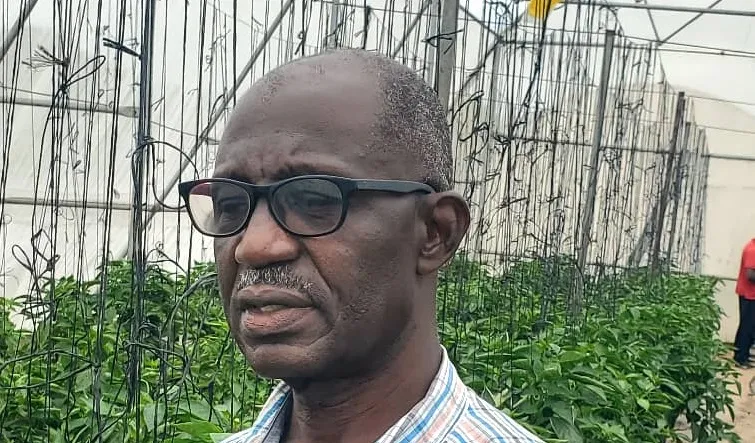
By: Linda Dede Nyanya Godji Incoom
As greenhouse farming gains momentum across Ghana, a leading industry voice is calling on the Ministry of Food and Agriculture (MoFA) to urgently develop standards tailored to the country’s unique tropical climate.
In an interview with agrighanaonline.com, Mr. Kwabena Adu Gyamfi, Managing Director of Agri Commercial Services Limited based in Wenchi, Bono Region, argues, “Most of the greenhouses being used here were designed for temperate climates, not for Ghana’s hot and humid environment. We urgently need standards from the Ministry that ensure greenhouse systems can function effectively under our climate conditions.”
According to Mr. Gyamfi, the lack of tailored standards is leading to costly inefficiencies for greenhouse operators. In many cases, facilities become unbearably hot by mid-morning to afternoon, as workers experience heat stress
“If you want to build a house in Ghana, you need to go to the assembly, submit your design, and get approval, but for greenhouses, people just see something online or abroad, bring it here, and set it up without considering whether it fits our climate, and other safety conditions, he added
Despite the government’s efforts to scale up greenhouse farming through the Ghana Irrigation Development Authority (GIDA), there remains a gap in enforcement, regulation, and technical training. Mr. Gyamfi noted that the potential for greenhouse farming in Ghana is enormous, but we can’t continue importing solutions that are not suited for our environment.
Greenhouse farming is known to boost yields by up to 100% and command premium market prices—sometimes five times that of open-field produce. However, Gyamfi warns that without climate-appropriate structures, these benefits could be eroded by frequent downtime, high maintenance costs, and poor working conditions.
In addition to construction standards, Mr. Gyamfi also advocates for the Ministry to implement mandatory worker safety protocols, subsidize access to suitable materials, and support academic research focused specifically on tropical greenhouse operations. “There’s a big research gap. We need data and studies that reflect our local context and not findings from elsewhere.”
While some newer operators are turning to net houses and improved ventilation systems to adapt, many others still face challenges with outdated or unsuitable designs. “It’s time the government stepped in with clear guidelines. This is no longer a pilot phase; greenhouse farming is expanding, and we must get it right.”
As the sector continues to grow, industry players are hopeful that MoFA will respond with policies that support safe, efficient, and climate-smart greenhouse development across Ghana.

